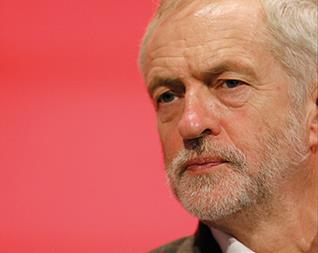I’m indebted to Jeremy Corbyn for one thing: I might get less grief from my wife next time I wear socks with sandals. But the Labour leader’s fashion faux pas could also presage a return to the ‘beards and sandals’ era of Labour housing policy.

Certainly housing could hardly be higher up the socialist firebrand’s agenda. His campaign pledges included policies such as ruling out Right to Buy for social housing tenants, but extending it to those of large private landlords; placing rent controls on private landlords; a ‘use it or lose it’ tax for developers accused of ‘hoarding’ land; and lower social rents. Housing also provided the two first questions in his maiden ‘People’s Question Time’. The shift left was reinforced by Sadiq Khan’s election as Labour’s London mayoral candidate, for whom housing is, in his words, “the number one issue by a mile”, and of Corbyn’s choice of John Trickett as shadow communities secretary, although the more moderate John Healey will shadow the housing brief he held for a short time in government.
The gleefully reported ‘gaffes’ during the Islington North MP’s first days as leader, such as not singing the national anthem at a Battle of Britain memorial and then nicking the sandwiches, gave satirists a huge boost, but it may be delusionary to follow the ‘Labour will be out of power for a generation’ line.
The new shadow team could soon start to affect decision-making. For one, it is likely to put its weight behind opposition to controversial government policies. These include the extension of Right to Buy to housing association tenants and the associated requirement for councils selling properties in high-value areas to fund the development of housing associations’ ‘lost’ homes. It also includes cutting housing association rents by 1% a year, a move they say reduces their ability to build homes.
Before Corbyn took the reins, Labour sounded strangely muted in its opposition to these proposals. Having gained a mandate of more than a quarter of a million votes in the leadership contest, resistance may become higher profile.
Other contentious areas include ‘office-to-resi’, which Corbyn has spoken out against.
Even more disputed is development viability assessments, a means of wriggling out of social housing commitments that even Boris Johnson has conceded is “something of a dark art”. A second effect could be called ‘scaring the horses’. The more off-the-wall his policies, the more likely potential investors in housing models could be put off should the polls start going the ‘wrong’ way. A third might be the signal it sends to local authorities. The Tories have offered big councils more autonomy on housing. An alternative view from the opposition could encourage left-leaning councils to plough a more social housing furrow. Conversely, more Nimby-inclined authorities might exploit divisions in policy to delay planning decisions.
The choice of Khan - now the bookies’ favourite to win the mayoral election - may have wrong-footed many developers who had been sidling up to Tessa Jowell. She was seen as a savvy figure who could do business with private developers. Khan is more of an unknown quantity. In the New Statesman he espoused policies such as a 50% target for “genuinely affordable homes”, the ‘London Living Rent’, putting first-time buyers and local tenants first and clamping down on ‘buy-to-leave’ investors.
The renewed focus on new homes seems to have niggled the government into already upping the ante. Witness Housing Minister Brandon Lewis’s rush to promise a million new homes in England by 2020. If nothing else, over the pantomime season we can look forward to Lewis and Healey in regular duets of Anything You Can Do (I Can Do Better). You could call it Annie Get Your Sealant Gun.
Alastair Stewart is building and property analyst at Progressive Equity Research






























No comments yet